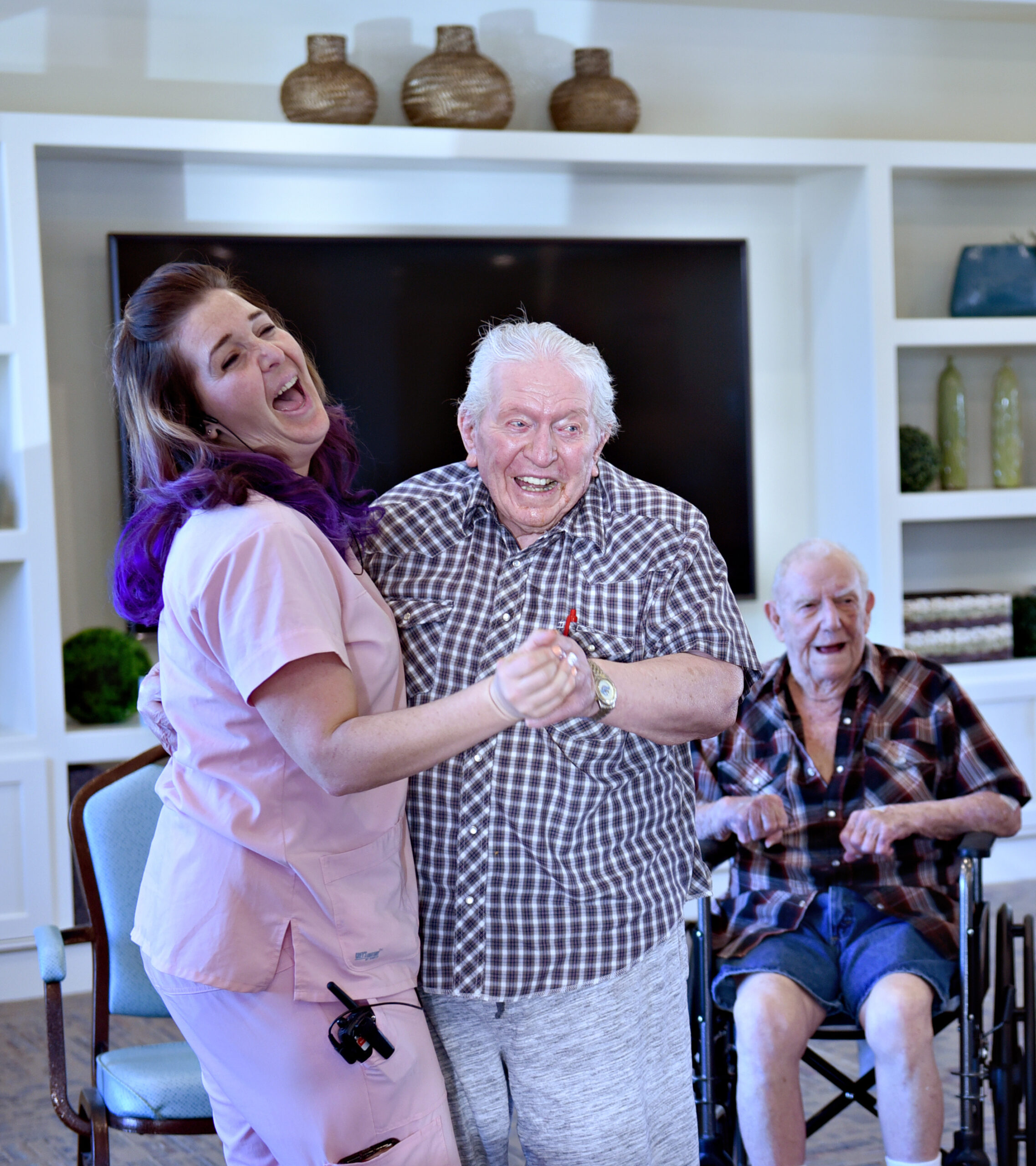What is Memory Care?

In the traditional nursing homes, memory care was not thought of as being anything more than providing the same activities and services as all other residents in the home. Often times, residents with dementia spend the majority of their time wandering around the building. When the residents wander, they don’t have anything or anyone to engage with. Activity Directors spend the majority of their scheduled activities providing engagement for people who can make choices and participate.
The rest of the day and night, all residents are left on their own during individual leisure time. Resident’s with dementia are unable to have leisure time. Leisure time means a person can start an activity on their own, or they need little direction. For a resident with dementia, They cannot start an activity on their own and they need direction and supervision. Due to the lack of training, support, supplies and time, employees will put residents in front of the TV, let them wander, or leave them in bed.
People who spend large amounts of time doing nothing will get depression, anxiety, and paranoia. People with dementia cannot start activities themselves. They need someone to get them started. There is a myth that people with dementia do not remember friends or cannot initiate relationships. That they have become lost in their mind and no longer need relationships, or social contact. The truth is, they need relationships, support, and a sense of belonging more than ever.
Secured units were created to keep a resident safe so they don’t wander from the building. Secured units also provide a place where everyone has some of the same struggles as the disease progresses. This does help with dignity. Secured units don’t always offer activities at all times of the day or night. Lack of training, supplies, and support keep the residents wandering, sitting in front of the TV or acting out.
Habilitation Therapy
Through a process called Habilitation Therapy, The Namaste Memory Care Program is creating a role where all employees are creating a home for the residents living in memory care. This role does not just fall on the Activities director.
Habilitation Therapy uses a person’s mood to create a home where a person can be as independent as possible. We cannot cure the person living with dementia, but we can offer choices, meaning, and purpose. We can support their feelings,keep their dignity, and make moments of success. This will encourage them to use their life skills. Behaviors are managed without using medication.
Employees are expected to change their own behavior or change the environment rather than expecting the person with dementia to change.
Memory care
Memory care is a form of long-term care designed to provide activities specific to those living with dementia. Memory care programming should take into account a person’s history and life skills and create a world where engagement is possible at all times of the day and night, not just during scheduled activities. Memory care programming is not just scheduled activities. Programming is a series of steps, supplies, education, life history, sensory needs, and activities just for residents with dementia. The program is simple enough to do anytime, day or night, and by any employee or family member.
Namaste Memory Center
The Namaste Memory Center Program is specially designed to help residents be independent as long as possible. All activities are designed to help residents make choices, use learned skills, engage in their hobbies, and feel loved and nurtured!
All employees are trained in dementia, behaviors, approaches, communication, and activities.
